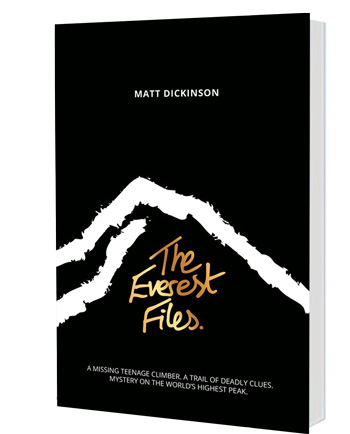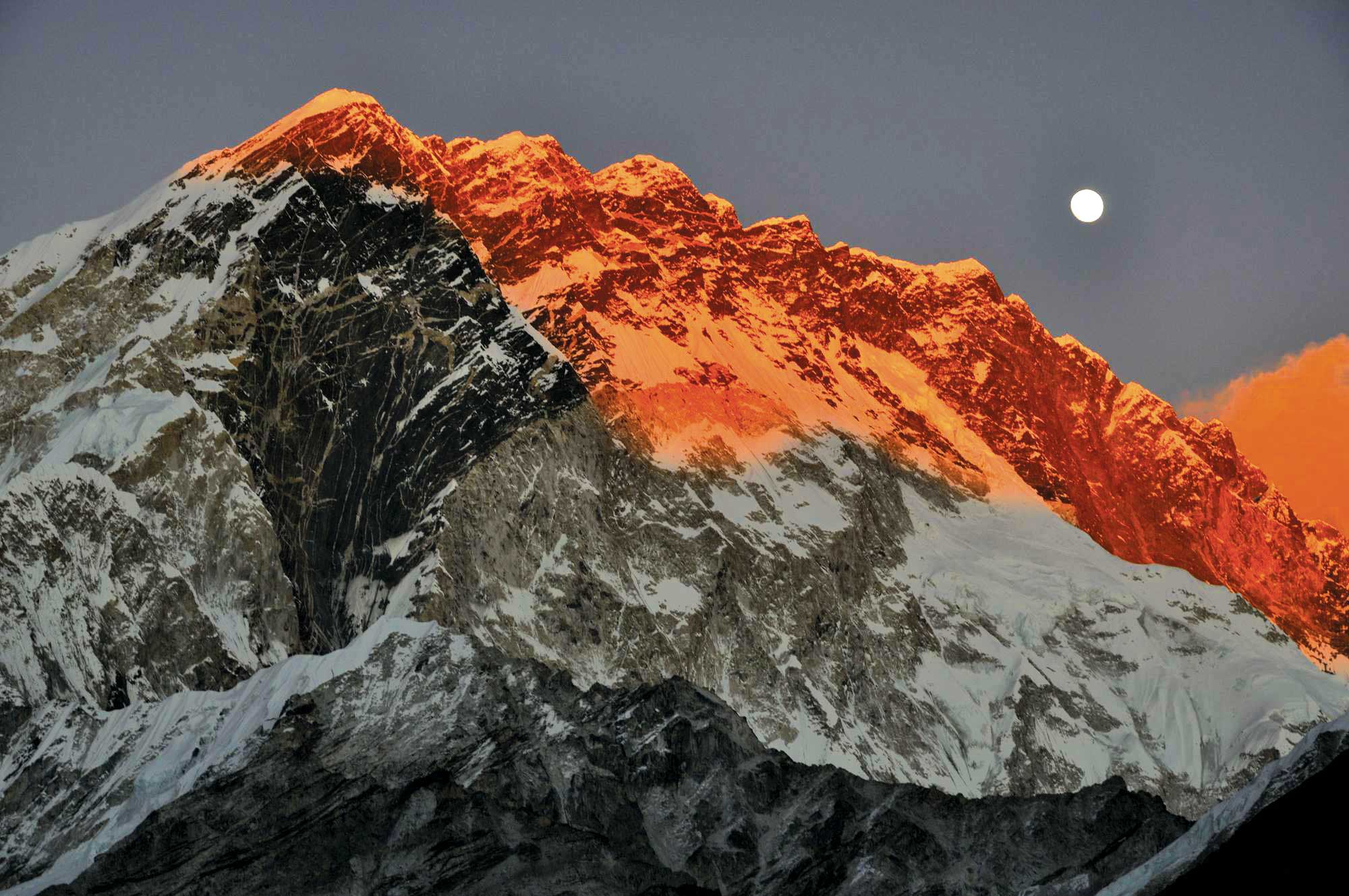On Sherpa speak, and a ‘coals to Newcastle’ effect
 I recently read a YA ‘thriller’ entitled ‘The Everest Files’, by Matt Dickinson. The cover blurb on this Young Adult novel (ages 12-20) shouts: ‘A Missing Teenage Climber. A Trail of Deadly Clues. Mystery on the World’s Highest Peak’. It’s an alluring tale about a young Western lad named Ryan who sets out to solve the mystery of 16-year old Kami Sherpa who gets into trouble on Everest and goes missing.
I recently read a YA ‘thriller’ entitled ‘The Everest Files’, by Matt Dickinson. The cover blurb on this Young Adult novel (ages 12-20) shouts: ‘A Missing Teenage Climber. A Trail of Deadly Clues. Mystery on the World’s Highest Peak’. It’s an alluring tale about a young Western lad named Ryan who sets out to solve the mystery of 16-year old Kami Sherpa who gets into trouble on Everest and goes missing.
The author knows Himalayan mountaineering well; and Sherpas, up to a point. During the deadly spring of 1996, Dickinson climbed Everest’s North Face, and with Sherpa help, survived that year’s catastrophically bad weather. He writes about it in ‘Death Zone: Climbing Everest through the Killer Storm’ and ‘Everest: Triumph and Tragedy on the World’s Highest Peak’.
He also writes novels for both adult and YA readers. Another of his YA stories is called ‘Mortal Chaos’. Its cover blurb declares: ‘Some Will Live. Many Will Die. All Are Connected’. The plot is based on ‘the butterfly effect’ from scientific chaos theory, which posits that a single occurrence of something in one place, no matter how inconsequential, may be connected to a serious problem somewhere else. (Perhaps something as insignificant as a butterfly flying here leads to a great effect, like a storm, elsewhere.)
‘The Everest Files’ is not so ambitious. It’s a good yarn, but as I read it, I became uncomfortable with how Dickinson presented Sherpas speaking English both to foreign climbers and among themselves. Some of their dialogue sounds too idiomatically Western, I thought.
It’s not easy for foreigners to write novels about Nepal, to convincingly portray linguistic nuances and cultural idiosyncrasies that they may not appreciate or comprehend. Writers run the risk of undermining the integrity of their stories by fudging facts and accuracy. Here’s a random sample of dialogue from ‘The Everest Files’:
Back in the kitchen Kami rounded on the other two. ‘You shouldn’t get involved with that guy,’ he told them sharply.
‘Why not?’ Nima shrugged. ‘Money is money, right?’
‘Can’t you see he’s stirring things up? He’s a troublemaker.’
Pemba turned on Kami. ‘So what? […] If we can make some honest money out of it then who cares?’
‘Anyway, maybe nothing’s going to happen,’ Nima said.
This conversation and others do not ring true (to my ears) of how young expedition Sherpas from the villages typically speak. On the other hand, however, we don’t want them reduced to mouthing some stodgy form of ‘pidgin English’ that sounds silly.
Back in 2011, I described a more serious flaw in another story also set in a Sherpa village. In his novel ‘And Not to Yield’, author James Ramsey Ullman had a different problem; he lacked basic cultural exposure to Sherpa village life.
Ullman began writing the novel in 1963 while in Nepal preparing ‘Americans on Everest’, the official account of that year’s American Mount Everest Expedition. He stayed at the old Royal Hotel, and though you’d think he would endeavor to gain a solid understanding of Khumbu village life, he never went there; he never left Kathmandu.
In the book, a young American climber falls in love with a Sherpa girl, goes to live in her village in Khumbu, and while there, in reciprocity for her love and Sherpa hospitality, he decides to introduce something novel to the hapless folks: toilets.
Unfortunately for Ullman, however, building toilets for Sherpas is like delivering “coals to Newcastle” (a well-known British coal town). Imagine an outsider introducing daal-bhaat to the Nepalis. What Ullman didn’t know was that virtually all Sherpa houses already had privies. Toilets are a vital source of ‘night soil’ with which to fertilize the potato fields.
Aspiring novelists take note: while Dickinson’s dilemma is distracting, Ullman’s is far more serious. The point is that, flaws like theirs highlight the trouble foreign writers can get into. Solid background research is essential to writing good cross-cultural prose.
Dickinson’s ‘The Everest Files’ was published in 2014. For a list of Matt Dickinson books, with reviews, go to his author’s page at Amazon.com. Ullman’s book ‘And Not to Yield’ came out in 1970. For an earlier critique of it, see ‘Fact and Fiction, Salt and Swing’ archived online at ecs.com.np.










